|
In 2023, I went into business as a fulltime editor. I worked on two dissertations, three scholarly monographs, and thirteen novels, none of which I’ll be discussing here. This \ post is about books I chose to read, not books I got paid to read. One unforeseen drawback to editing professionally: I have less enthusiasm for pleasure reading in my off time. I’m more likely to reach for music than audiobooks these days. But I still managed more than one book per week, and I would like to take the opportunity—I would like to take every opportunity—to mention that one of those books was War and Peace. Total books read: 78. That’s 60 books I chose to read, plus another 18 I edited or indexed professionally. For the rest of this post, we’re just going to focus on those 60. Age levels:
Books that were published in 2023: 6
Nonfiction: 20 Fiction: 40. That feels about right, a two-to-one fiction-to-nonfiction ratio. Genres: (as some books have more than one genre, total exceeds 60)
Fiction:
Miscellaneous:
Best books of the year: A Swim in a Pond in the Rain, by George Saunders This is a collection of Russian short stories and literary criticism. Do you understand how hard it is for me to get people to read this book? It is so good though. So good. It is the all the joy of studying writers and stories with none of the Foucault. The Address Book, Deirdre Mask
Here’s another hard sell: a nonfiction book about street addresses! It is captivating, though. Truly. I’ve never thought so much about street names or numbers or how that influences our lives. This is sociology + data nerdery. Also, important thing to note, people in England use filthy names for their streets. They just do not care. Best audiobook narrators: Roger Clark, The Searcher (Tana French). Tana French remains my favorite contemporary crime writer. This was my first time enjoying one of her novels as an audiobook. Clark does authentic Irish and American accents throughout. Frazer Douglas, Song of Achilles (Madeline Miller). The sensuality of this man’s voice needs a warning label. Various: A Swim in a Pond in the Rain (George Saunders). Saunders narrates the literary criticism part of this book, but the stories themselves are read by various actors:
Themes:
K. J. Parker: Is he still the best? I will never stop banging this drum. Tom Holt is always terrific and so is his pseudonym, K. J. Parker. Honorable mentions:
All the books I read, sorted by genre: Nonfiction Business Cather, Karin and Dick Margulis. The Paper It's Written On, 2018 Fishman, Stephen. Deduct It! Lower Your Small Business Taxes, 2023 Pakroo, Peri H. The Small Business Start-Up Kit, 2018 Grammar and editing Dreyer, Benjamin. Dreyer's English, 2019 Harnby, Louise. Business Planning for Editorial Freelancers, 2013 Saller, Carol Fisher. The Subversive Copyeditor, 2016 Health and wellness Albright, Mary Beth. Eat and Flourish, 2022 Murthy, Vivek. Together, 2020 History Burton-Hill, Clemency. Year of Wonder, 2017 Cleves, Rachel Hope. Charity and Sylvia, 2014 De Madariaga, Isabel. Politics and Culture in Eighteenth-Century Russia, 1998 Figes, Orlando. The Story of Russia, 2022 Hartnett, Lynne Ann. Understanding Russia, 2018 Kytle, Ethan J. and Blain Roberts. Denmark Vesey's Garden, 2018 Rosslyn, Wendy. Women and Gender in 18th-Century Russia, 2003 Sexton, Jared Yates. The Midnight Kingdom, 2023 Twitty, Michael W. The Cooking Gene, 2018 Literary criticism Saunders, George. A Swim in a Pond in the Rain, 2021 Meditation Nhất Hạnh, Thích. The Miracle of Mindfulness, 1975 Selassie, Sebene. You Belong, 2020 Social science Gottschall, Jonathan. The Storytelling Animal, 2012 Mask, Deirdre. The Address Book, 2020 Perry, Benjamin. Cry, Baby, 2023 Fiction Crime Braithwaite, Oyinkan. My Sister, the Serial Killer, 2018 Christie, Agatha. The Murder of Roger Ackroyd, 1926 French, Tana. The Searcher, 2020 Todd, Charles. A Test of Wills, 1996 Tudor, C. J. The Chalk Man, 2018 Winters, Ben H. The Last Policeman, 2012 Fantasy Abercrombie, Joe. Half a King, 2014 Abercrombie, Joe. Half a War, 2015 Abercrombie, Joe. Half a World, 2015 Klune, T. J. Under the Whispering Door, 2021 Lee, Thomas D. Perilous Times, 2023 Nix, Garth. Sabriel, 1994 Vo, Nghi. The Empress of Salt and Fortune, 2020 Vo, Nghi. Into the Riverlands, 2022 Vo, Nghi. Mammoths at the Gates, 2023 Vo, Nghi. When the Tiger Came Down the Mountain, 2020 Weeks, Brent. Beyond the Shadows, 2008 Weeks, Brent. Shadow's Edge, 2008 Weeks, Brent. The Way of Shadows, 2008 Folk tales Afanasyev, Alexander Nikolaievitch. Russian Folk Tales, 1980 Horror Barron, Laird. The Beautiful Thing That Awaits Us All, 2018 Bradbury, Ray. The Halloween Tree, 1972 Literary fiction Backman, Fredrik. A Man Called Ove, 2019 Capote, Truman. Breakfast at Tiffany's, 1958 Coupland, Douglas. Life After God, 1994 Dickens, Charles. The Pickwick Papers, 1836 Haynes, Natalie. Stone Blind, 2022 Miller, Madeline. Song of Achilles, 2011 Tolstoy, Lev. War and Peace, 1867 Science fiction Adams, Douglas. The Hitchhiker's Guide to the Galaxy, 1979 Banks, Iain M. Consider Phlebas, 1987 Delaney, Samuel R. Babel-17, 1966 Holt, Tom. When It's a Jar, 2013 Le Guin, Ursula K. The Lathe of Heaven, 1971 North, Claire. The First Fifteen Lives of Harry August, 2014 O'Brien, Robert C. Mrs. Frisby and the Rats of NIMH, 1971 Wells, Martha. System Collapse, 2023
1 Comment
While the rest of you are enjoying Charles Dickens the way God intended, with Muppets, I am here finishing up the first Dickens novel, The Pickwick Papers, serially published in 1836-1837. It follows the adventures of an English gentleman named Pickwick and several of his fellow gentlemen. I cannot overstate how boring these adventures are.
Forgive me. I do not typically speak ill of works by living writers, and even though Dickens is safe from my literary criticism, there are plenty of you out there who like this book, and here I am being unkind to it. I am sorry. I would like to hear what it is you like about it. The book is a series of linked vingettes. Many of them feel frivolous. It is true there are moments of depth, but the first time I said "Ah, now we're getting somewhere" was p. 564, which is fairly late in the game for a plot to thicken Pickwick gets himself thrown in debtors' prison, and for a few blessed pages, Dickens writes with the social consciousness that elevates him above so many other writers. That passage would be enough to radicalize anyone into becoming a prison abolitionist. Regrettably, I cannot speak with such fervor about the remaining 700ish pages. There are also footnotes and appendixes but I have only one wild and precious life. A couple of years back I listened to an audiobook version of The Christmas Carol. It's in the public domain, so there are quite a few voice actors to pick from, but I quite enjoyed the narration by Tim Curry, and that's what I might recommend before the Pickwick Papers. Since January 1, I've been a mini-chapter a day from Year of Wonder, featuring a piece of classical music and an essay.
It's an accessible book for people who don't know a lot about classical music. I was a serious music student in my youth, so I know quite a lot actually, but many of the pieces and composers were unfamiliar to me. Rather than formally surveying the major works, Clemency Burton-Hill takes an organic approach, showcasing lots of lesser-known and contemporary composers. This is less Classical Music 101 and more Let's Do Shots and Listen to Some Cool Shit. The coolest thing I learned is that Beethoven's music has been sent into space to represent the sounds of the people of earth, should any extra-terrestrials find it: String quartet no. 13 in B flat major, op. 130, 5: Cavatina: Adagio molto espressivo. It's among my favorite pieces of music. Give it a little listen if you're inclined. I talked about Nghi Vo's fantasy series The Singing Hills Cycle a few months ago. The books follow a cleric named Chih, whose religious order focuses more on history than faith. In this third entry, Into the Riverlands, Chih is once again traveling the land, looking for stories to collect. If you haven't read the first two, that's fine. Each novella stands independently.
Vo's prose style is quite good, and her storytelling is masterful. You don't know the details of the plot, going in, but you recognize right away that you're in for a good story. It's a blend of adventure and magic with a setting that recalls the hinterlands of Imperial China, only gayer. Vo's characters express a variety of genders and sexual orientations. And while there are lots of sections with fast action and tense battles with bad guys, the book has a contemplative feel. By which I mean I cried several times. I picked up Jared Yates Sexton's The Midnight Kingdom not knowing what it was about, but trusting I'd enjoy it based on the author's previous book The Man They Wanted Me to Be, a memoir about masculinity in America.
This one is a history book that helps explain the interesting times we are living in. Some of it is religious history, looking at the origins of Christianity all the way through to contemporary conservative evangelical beliefs. Some of it is a history of race, racism, and white supremacy. And a great deal of it is about the history of capitalism, with a focus on neoliberalism there toward the end. The Midnight Kingdom is history popcorn if you have progressive politics. If you aren't out here on the lefty side of things, you'll probably hate this book, sorry. And while many of the ideas were familiar to me, I was grateful to have a cohesive narrative laying out the story of how we've reached a point in history that feels, to me anyway, fragile. I can't pretend this book made me feel better, haha no, humanity keeps repeating the same goddam mistakes only now we've got AI and Elon Musk is the most powerful person in the world, this is exceedingly not good. Also there's climate change. But I appreciate being better informed. That's something, right? That is still worth something Douglas Coupland's 1994 novel Life After God is super weird. It's about going going though normal adult stuff. Like many works of literary fiction, the plot is not really the main point, though I do not wish to imply that this story lacks in action. The scenes with the exploding nuclear bomb are pretty quick paced if that is important to you.
I want to say that this is a book about finding community and connection even in an isolated world. Now granted I am suspiciously able to find those themes in every book I read, but in this case the reviewer blurbs back me up. This book is dangerously quotable. A few instances: "His main pick-up technique was to pump out negative signals so that women with low self-esteem would be glued to him." "Before we know it, too much time has passed and we've missed the chance to have had other people hurt us. To a younger me this sounded like luck; to an older me this sound like a quiet tragedy." "As I--we--get older, we are all finding that our conversations must be spoken. A need burns inside us to share with others what we are feeling. Beyond a certain age, sincereity ceases to feel pornographic." Coupland's writing reminds me of Russell Banks, with the shrewdness of the main character's perceptions. And I think it's not too much of a stretch to compare this book (it really is weird) to The Little Prince, though it's less whimsical and more the-march-of-time-comes-for-us-all. Also there are lots and lots of little pictures throughout the book, which is pretty great, more books need this please. System Collapse, the latest in the science fiction series of novellas-approaching-novels by Martha Wells, was released four days ago. I did extra housework to get in the listening time so I could discuss it today. My floors are looking nice.
Murderbot is a security unit, a construct of human and machine parts. Its job is to provide security to a group of human researchers, who keep getting into mortal peril when they visit other planets. Its likes include watching soap operas. Its dislikes include getting attached to humans, who are messy and complicated. Narrator Kevin R. Free does such a good job with this series. I am especially fond of the voice he does for ART, the sentient research vessel that steals every scene it's in. I'm almost as fond of ART as I am of Murderbot. Don't tell Murderbot I said that. Don't start with this one of you're new to the Murderbot Diaries. Go back to the beginning with All Systems Red. I realize I haven't said anything about this book specifically. I don't think I'll go into plot details, but I'll say that it made me feel some feelings the same way poor Murderbot felt them. "I was having an emotion, like a big, overwhelming emotion. It felt bad but good, a weird combination of happy and sad and relieved, like something had been stuck and wasn't stuck anymore. Cathartic, okay? This fits the definition of cathartic." Contemporary literary fiction is so disappointing to me, so often, but I keep going back to it because sometimes you'll find a gem like Ghost Wall, by Sarah Moss. Also it is short, and that is an admirable quality in a book when your time for leisure reading is limited.
Somewhere in northern England, seventeen-year-old Sylvie is on holiday with her parents. Sylvie's dad is a huge history buff and wilderness survivalist, which is why nobody in the family has bathed in several days. They're too busy foraging hazelnuts and mussels like their Bronze Age forebears. It sounds like the setup for a comedic novel, and while there are moments of hilarity, that's not the primary emotion at work here. This is a dark, violent, ugly story about domestic violence. Sarah Moss reminds me of was Kate Atkinson, but as I was reading reviews, I found a better comparison: Flannery O’Connor. I think that's about right, Flannery O'Connor with some Shirley Jackson. It's about bad men hurting their families, and how individuals and communities perpetuate violence, and in the middle of all this you find yourself snort-laughing because Sylvie said something droll. This is another one where I recommend the audiobook if you can get it. The working class v. posh accents play a role, and narrator Christine Hewitt does an outstanding job. I confess I haven't finished the audiobook yet for Stone Blind, written and narrated by Natalie Haynes, but it's based on Greek myths so I'm sure everyone is happy in the end and no one dies.
Okay so. I was not expecting much from this, for the very simple reason that Madeleine Miller's Greek retellings knocked my socks off, and Claire North has a retelling out recently that I expect will additionally knock my socks off, and there's only so much room for talent to go around. Oh I was wrong. Haynes is funny, let's get that out of the way first. The section she wrote from the perspective of a crow had me clawing at my throat for more air, I was gasping so hard. Or here's this bit from the perspective of an unnamed Nereid: "Mortals have a word for this kind of arrogance, the kind that makes a person think she can compare herself favorably to a goddess. The word is hubris. And while I am all in favor of using precision to describe something, might I suggest that you would be better off not doing something so dangerous so often that you need a specific word for it. Perhaps develop your self-control rather than your vocabulary." Contrast that to the section where the gods of Olympus were marching to war with the giants. It's told from the point of view of Athene and I swear I felt an emotion I can only describe as battle lust. I wanted to march with some comrades in arms and hit something. For the record my typical emotional response to anything is crying a lot. I was never much into the gods when we studied classical antiquity in high school English. I found them capricious and arbitrary. Haynes maintains these flaws while making them believable. As for her prose: follow me for any time and you will find I am insufferable about word-smithing. I have such unforgiving standards. And here I was listening to the prose and wondering if maybe I could write like that, if I worked hard at it. As for the narration: it is perfect. Haynes is not a voice actor and doesn't bother attempting different voices for different characters but it doesn't matter. She's so expressive with each one. And she has the type of English accent that is kryptonite for American listeners. Occasionally Medusa comes out as Medus-er. p.s. It's also a fine time to listen to Tom Waits singing "Stone Blind Love." I had planned to do horror books throughout the month. I started a new-to-me writer, Gemma Files, but there was heavy gun violence in the opening chapters, and this was not the week to read that.
Instead, I'll mention T. J. Klune. I've only read two of his books so far, but each one has been the emotional equivalent of hot cocoa and fat lazy cats. The only reason I'm not immediately reaching for another is that I'm trying to pace myself, one per year. The House in the Cerulean Sea is a fantasy novel and queer romance about finding family when you feel unwanted. Under the Whispering Door is a fantasy novel and queer romance with a redemption arc. You know that warm feeling you get inside when Scrooge looks out the window on Christmas morning, wondering what day it is? Same emotional payoff here. For books that will inform you or give you ideas for addressing a social problem...how about Isabel Wilkerson's Caste? I've read extensively about race and racism, and hers is one of the best. It's a long book and a longer audiobook, but it flew by, which is not something I often say about meticulously researched social histories. |
Book talks
When Covid first hit, I started doing book talks on social media as a way to keep in touch with people. I never got out of the habit. I don't discuss books by my clients, and if I don't like a book, I won't discuss it at all. While I will sometimes focus on craft or offer gentle critical perspectives, as a matter of professional courtesy, I don't trash writers. Unless they're dead. Then the gloves come off. Archives
February 2024
Tags
All
|

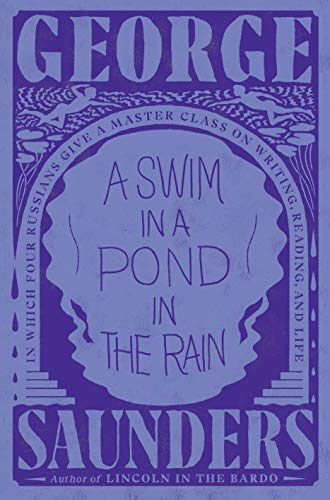
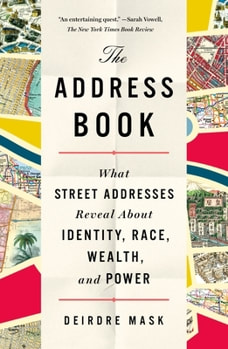
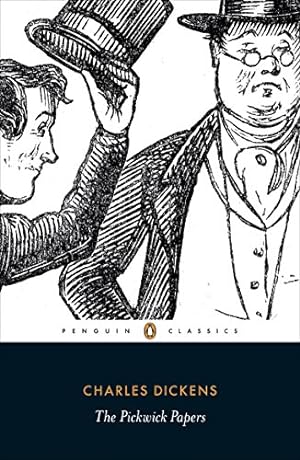
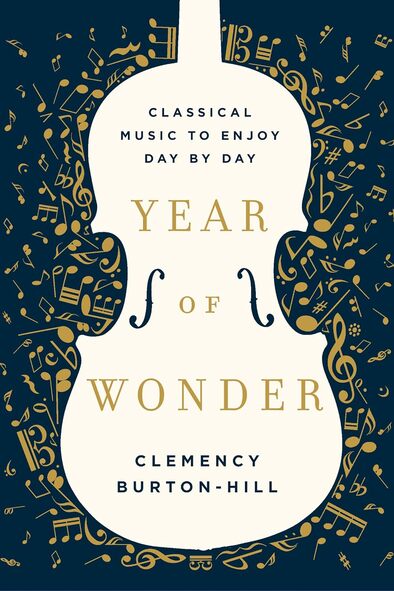
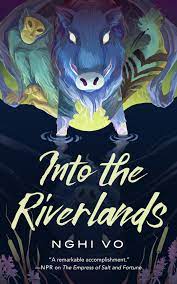
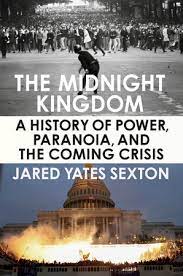
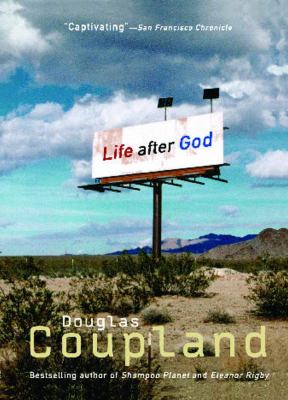
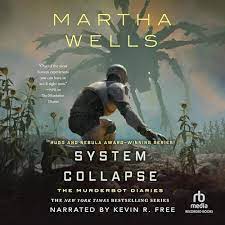
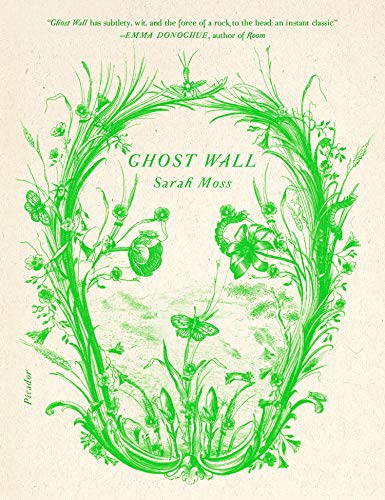
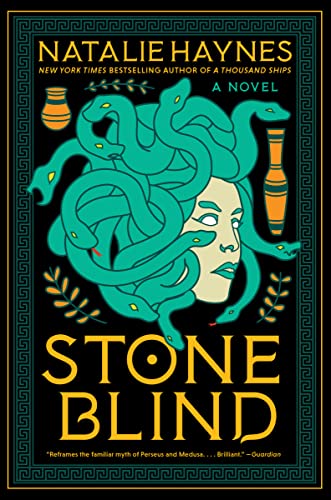
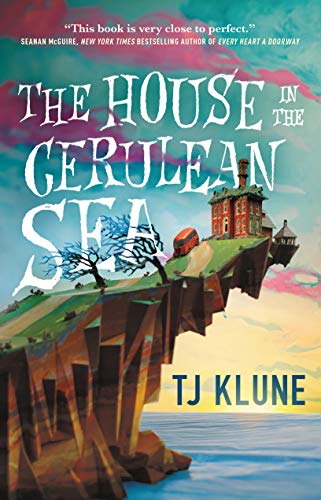
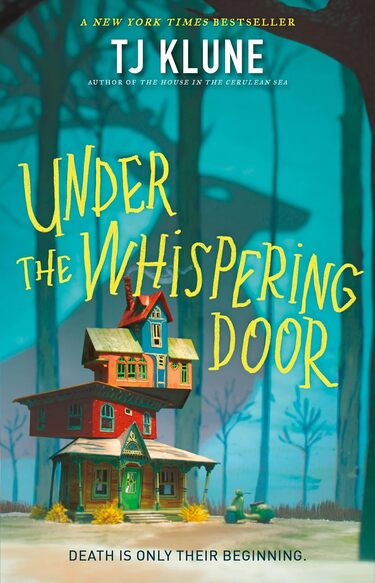
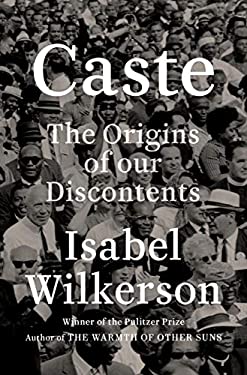
 RSS Feed
RSS Feed